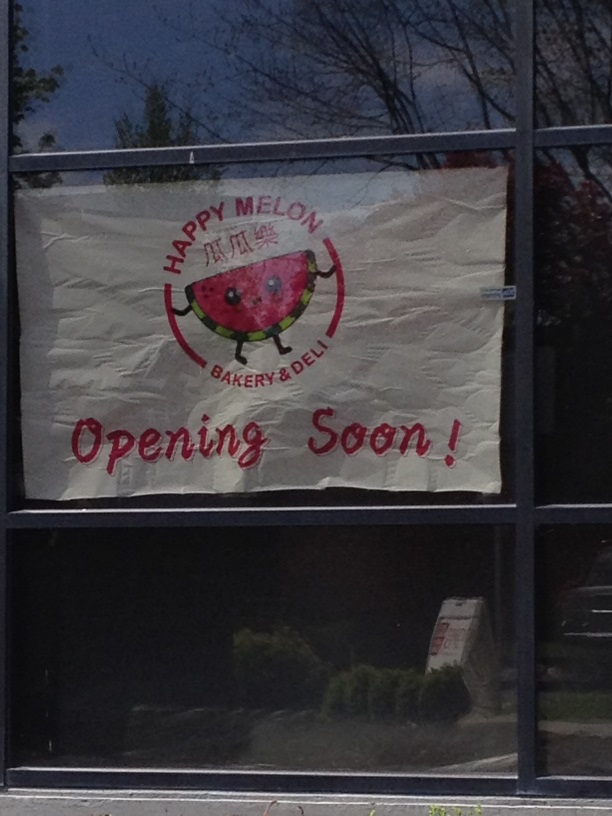Tomorrow night Seattle Weekly hosts its annual Voracious Tasting, a bonanza of eating, drinking, and food-trucking that’s big by every measure: Hundreds of partygoers will consume thousands of inspired sips and snacks from a few dozen of the city’s most talented chefs, bartenders, and food artisans. But the event also celebrates big ideas and the local culinary visionaries who came up with them. Here is our introduction to the very deserving recipients of the 2013 Voracious Tasting Awards.
2013 Sustainability Award: Salish Sea Trading Cooperative
Georgie Smith, a fourth-generation Whidbey Islander, grows pumpkins, kohlrabi, and fava beans on the land her forebears began farming in the late 19th century. After she harvests her crops, she sells them at markets and specialty grocery shops on Whidbey, since her long work weeks at Willowood Farm don’t leave her much time to frequently pile vegetables into a truck and barrel up State Route 20 to the mainland.
So when Salish Sea Trading Cooperative’s Kathy Pelish this spring outlined her group’s mission at a Women in Agriculture conference, Smith was one of the attendees who gasped in excitement.
“Her grandfather used to bring things to the wharf in Coupeville,” Pelish explains. And if Salish Sea Trading Cooperative succeeds, Smith will soon be able to do the same, shipping her saleable goods to Seattle instead of making the drive once or twice a week.
“It was happy astonishment,” Pelish says of the mood that seized the room. “They probably thought it was bold in a crazy way. Whidbey Island is an island, and if you’re an island community, water is never far from your consciousness.”
For the cooperative, water represents a way to inject a new measure of sustainability into the food system. Its mission is to move goods by sail power, eliminating the need to burn fossil fuels.
The Salish Sea Trading Cooperative didn’t invent the notion of harnessing wind power to shuffle local food via waterways, but it’s at the forefront of the movement in the Pacific Northwest. “We’re one of the first to actually do it,” Pelish says, adding that projects have sprung up around Lake Champlain and the Great Lakes since Dave Reid in 2008 launched the Sail Transport Company, coordinating wind-powered trips to Sequim to fetch berries from Nash’s Organic Produce Farm. Two years later, the program was recast as a cooperative.
Salish Sea Trading is now entering its fourth season of experimentation, relying on volunteer sailors and recreational craft to make good on its fledgling CSA’s promises; the group’s 30 subscribers have collected honey, potatoes, beets, and turnips from the Olympic Peninsula. More recently, boats have begun carrying artisan edibles from Seattle across the Sound. The first ceremonial delivery was a box of Theo Chocolates ferried to the Port Townsend Food Co-op.
This season, the 15-member co-op is planning a series of trial round trips from Ballard to Bainbridge Island, with Coupeville trips also in the works. Pelish believes the project will be fully operational by 2015. Having recently qualified for 501(c)4 status, Salish Sea Trading is now shopping for insurance and dedicated schooners.
Still, Pelish says sail transport will always be a small-scale effort: The cooperative is ultimately more interested in mobilizing people than produce. “The idea is not to become commander of the fleet,” she says. “The idea is to become more mainstream.”
Pelish compares moving goods by sail to other initiatives that have fundamentally changed the ways their participants understand and address transportation needs, such as Zipcar.
“It’s not socialistic, it’s realistic,” Pelish says. “We know we have to come up with a response to climate change. If I need to get something from Ballard to Bainbridge, why would I send a truck? Sure, sail will take an extra day, but it doesn’t pollute, and it’s something positive in this stretch of negativity.”
2013 Innovation Award: Off the Rez
Staffers manning the window of Off the Rez’s turquoise truck, with an airbrushed silhouette of a man in a feather headdress splayed along its panels and a peace-pipe smoker pictured on its rear doors, are accustomed to hearing the questions that are asked of nearly every truck operator: Are you always here on Tuesdays? Can I buy a T-shirt? Is this gluten-free?
But owner Mark McConnell is also often asked a question that never surfaces when the menu board lists gyros or waffles.
“We get hit up with ‘Is this Native-owned?’ all the time,” McConnell says. “It’s kind of a protective thing in a way. They’re trying to verify you, asking which tribe.”
For the record, McConnell is Blackfeet. His mother grew up on the tribe’s reservation in Browning, Mont., and he paid plenty of childhood visits to relatives who schooled him in Native traditions. Yet McConnell says the interrogations are only partly intended to establish his right to serve frybread, the dish most closely associated with contemporary Native American culture: The curious eaters are also intrigued by his commercial success.
“There aren’t a lot of Native American–owned businesses,” McConnell explains.
With the opening of Off the Rez in late 2011, McConnell and partner Cecilia Rikard—assisted by Donovan MacInnis, a longtime friend who assumed chef duties—proved that Native-owned businesses can thrive far from reservations. And they made their point with frybread, a puffy round of fried dough that’s still unknown in much of white America. With every other food-trucker looking halfway around the globe for inspiration, McConnell chose to showcase a genuinely indigenous dish, tapping into a cuisine that ritzy locavore restaurants have long ignored.
“It was obvious once I thought about it,” McConnell says. “Frybread is a really good vehicle for flavor combinations.”
Once McConnell and McInnis settled on a frybread recipe that “kept the authenticity with the dough, but did something different with it,” they devised a range of sweet and savory toppings, including lemon curd and pulled pork. “Some people call them fancy because they’ve got pickled onions instead of salsa,” McConnell says of the open-faced sandwiches typically described as “Indian tacos.”
McConnell assumed the menu would change seasonally, but each preparation has so many devoted fans that he can’t pull an item without risking an uproar.
Off the Rez is now plotting its first permanent location on Capitol Hill. Although the team hasn’t yet found a venue, the plan’s already raising another question that restaurants without Native ties don’t have to field: Will it serve liquor? McConnell says yes, with plans to offer “really good food and really good drinks.”
“It’s hard to say how the Native community will take that,” McConnell says, acknowledging the knotty relationship between Native Americans and alcohol. Figuring out how to handle liquor in a restaurant specializing in “Native-inspired” dishes is critical to the genre’s future, since restaurants rely heavily on profits from alcohol sales.
“It’s kind of an emerging cuisine,” McConnell says.
And it’s emerging with Off the Rez’s help.










